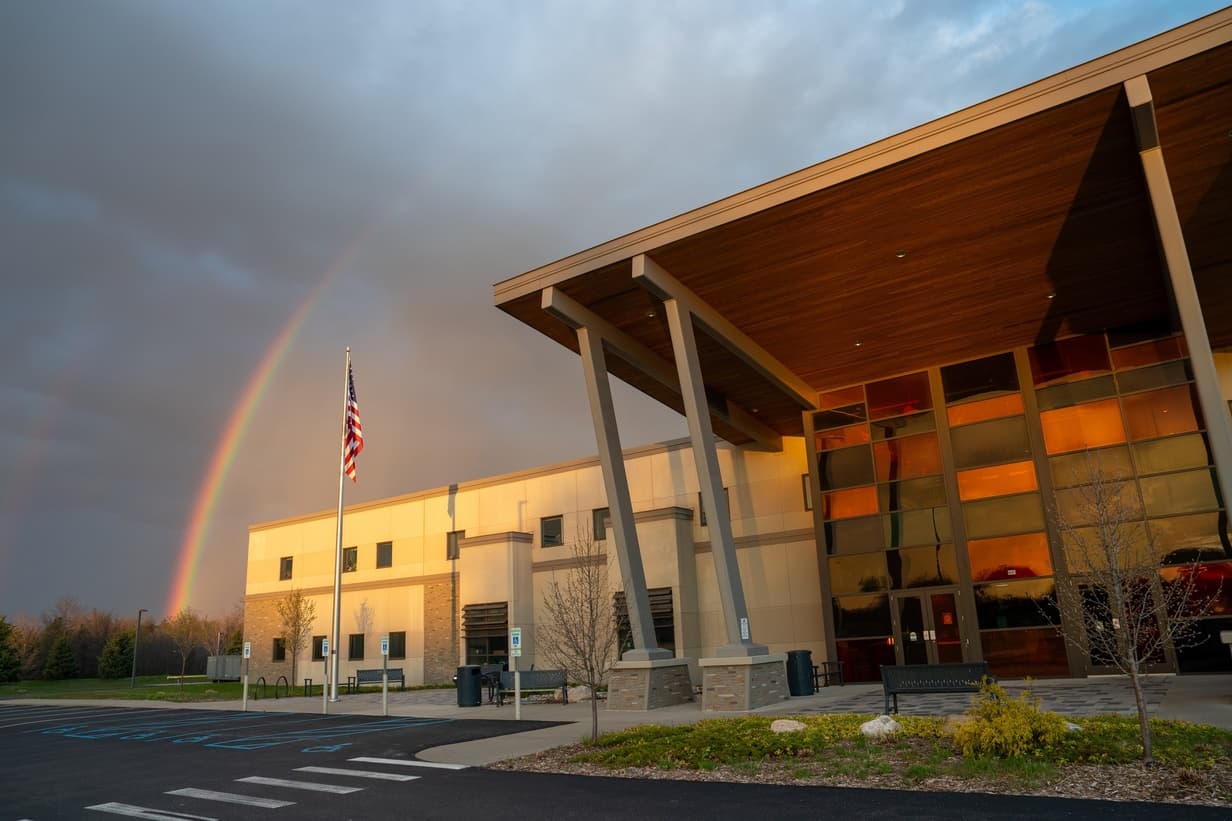Budget Earmark Could Bring Forestry Simulator to Northern Michigan
A $100,000 earmark in Michigan's 2026 budget could allow Kirtland Community College in Gaylord to become the state's only institution with a forestry harvest simulator, a tool proponents say would strengthen workforce training across the region. The proposal matters to local residents because it could expand hands on training opportunities, support local employment pathways in the forestry trades, and set a precedent for how state budget priorities shape vocational education in northern Michigan.
Listen to Article
Click play to generate audio

Michigan lawmakers included a $100,000 earmark in the 2026 state budget that could enable Kirtland Community College in Gaylord to acquire a forestry harvest simulator, potentially making the college the only institution in the state with that capability. College leaders have said they intend to share simulator access with other community colleges and training programs, a move supporters argue would increase training capacity across northern Michigan and better prepare workers for careers in the forestry trades.
The request arrives amid broader interest from industry leaders in hands on simulator training, who view simulation technology as a way to accelerate skill acquisition while reducing risk and equipment costs associated with live training. Backers of the earmark say the simulator would help address workforce needs by providing consistent, repeatable scenarios that complement field experience, and by expanding the number of trained operators available to local logging and timber companies.
Earmarks in the state budget are specific legislative allocations for projects in particular districts or institutions. This earmark illustrates how those allocations can directly influence the distribution of vocational resources and the geographic spread of specialized training. The inclusion of the simulator funding in the budget highlights the role lawmakers play in directing workforce development investments and raises questions about oversight, long term operating costs, and accountability for outcomes.
For Grand Traverse County residents and neighboring communities, the potential acquisition has several local implications. Increased training capacity could create clearer employment pathways for residents seeking careers in forestry and related industries. Shared access among colleges may reduce travel burdens for students in remote areas and encourage regional coordination among post secondary institutions. Employers could benefit from a deeper pool of trained candidates, which may support local wages and business continuity in an industry that remains important to northern communities.
Institutionally, Kirtland Community College would gain a unique asset that could boost enrollment in natural resources programs and strengthen partnerships with industry stakeholders. The college will need to plan for staffing, curriculum integration, maintenance, and scheduling if the purchase proceeds. State and local officials will also face decisions about monitoring the effectiveness of the investment and reporting outcomes to constituents.
The earmark underscores the intersection of budget politics, workforce policy, and community economic development. Residents and civic leaders interested in vocational education and local employment opportunities should follow implementation plans, ask for transparency on how the simulator will be operated and shared, and engage with college and county officials as the project moves forward.


